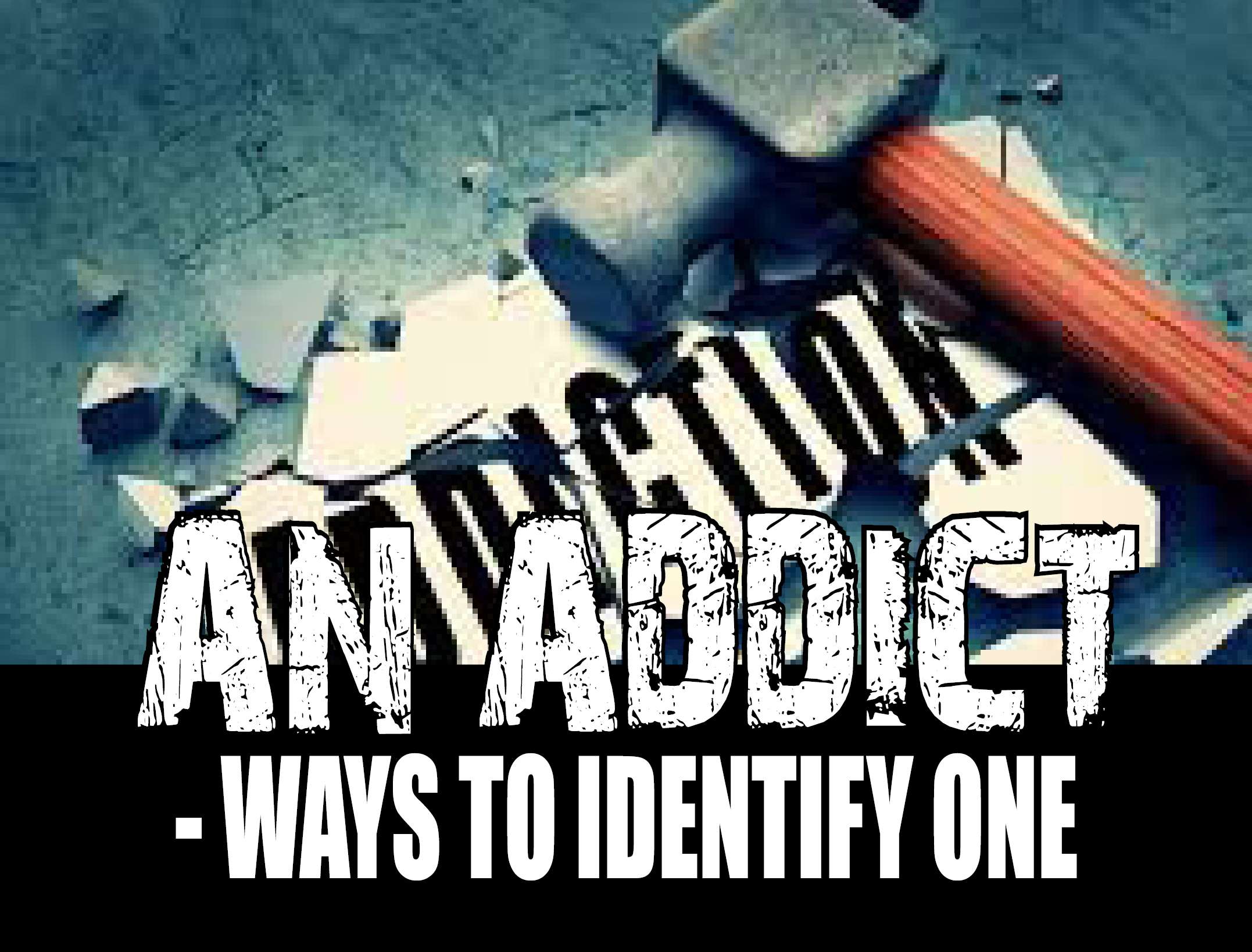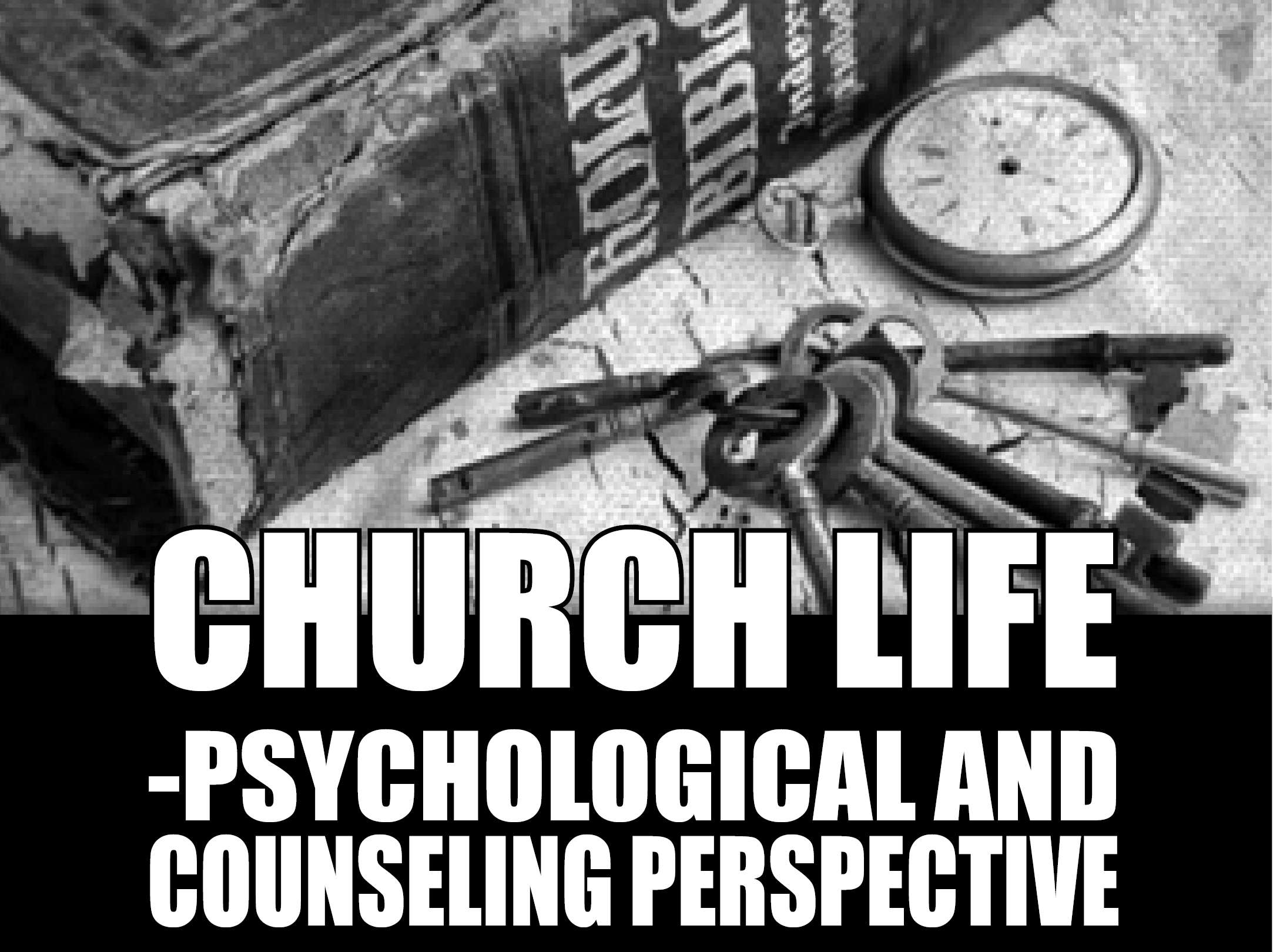
An Addict-Ways to Identify One
Dr. Saji Kumar K. P.
Drugs are meant to save a life but they have been misused over the centuries. It continues to destroy people and society.
Since the beginning of history humans have searched for substances that would sustain, protect and act on the nervous system to produce pleasurable sensations. Individuals are attracted to drugs because of the belief that drugs help them adapt to an ever-changing environment and taking drugs reduces tension and frustration, relieves boredom and fatigue, and in some cases it seemingly helps people to forget and escape the harsh realities of their world.
Addiction affects not only the abuser but also the whole community. Substance abuse brings guilt feelings, relationship problems and several spiritual problems. Many of them feel rejection, loneliness, shamefulness, depression, hate and anger. Substance abusers find failure to fulfill major role obligations at work, home and church. This ends them up in poor work performance, suspensions of his/her life, neglect of children or household, continued substance use despite having persistent social or interpersonal problems caused by the effects of the substance, and most of all it means arguments with spouse about consequences of intoxication, and quarrelling with each other. It also denotes an irresistible mental craving or compulsion or urge for the drug, that the person will go to the extent of begging, borrowing, stealing, robbing, and even killing to satisfy his/her need regardless of the place, people and time. After the habit is established, they needs to take drugs in order to feel “normal,” a condition referred to as psychological dependence. Following are some of the ways to recognize an addict.
Change in physical condition
The first sign of addiction is its physical symptoms. Indistinctive speech or overemphasis on words, tremor in speech is evident in drug addicts. They also might have red or watery eyes, out of focus or glassy look, complaining of regular illness to hide the effects of drugs, craving for sweets, occasional vomits late nights, gets up at night to have drugs, and also their eating habits are very irregular. They avoid eating with their family members. They usually eat little and sometimes eat a lot but suffer from constipation. Alcohol and drugs can spoil any part of the body and curtail its proper functioning. Drugs promote indigestion and causes constipation in the beginning but for the habitual and longtime users, it causes loss of appetite and gastric derangement. The knowledge of time and personality is lost and the drugged person feels that he/she is enjoying the pleasure of life for hours together, although in reality it is only for few minutes. If continued, it causes intoxication and loss of self-control.
The subject becomes very talkative, jovial and laughs at the minutest things done or said. The delirium is generally noisy and restless, which is accompanied by muscular excitement and it is followed by sleep which is accompanied by delightful and erotic dreams. Continuous use of large doses of drugs will lead to coma followed by death from cardiac failure. For the beginners it will result in mental derangement and even insanity.
Alcohol also produced gases in the stomach which may cause bloating and cramping. Drinking can interfere with the body’s ability to digest food and absorb vital nutrients. For constant drinkers, this can contribute to malnutrition and the development of some alcohol related diseases. Therefore, long term use of alcohol is associated with higher rates of peptic ulcers in the lining of the stomach. It can also lead to inflammation of the stomach (gastric) which causes loss of an appetite, nausea and stomach pain.
There is a function of transmitting information in the brain through the release of specific chemicals by what is called neurotransmitters. The constant abuse of drugs damages its function and there is a progressive weakness in the cells of the brain and consequently in the movement of muscles. Muscles become flabby, and the skin, dry, red, and shiny and there is also excessive perspiration on hands and feet. Alcohol cause damage to muscle tissue and as a result there is acute muscle pain and weakness especially in the limbs. The affected muscles may later become swollen and bruised. Indisputably, drug abuse is one of the causes of cancer. Heavy abuse of drugs increases the risk and also develops cancer in tongue, mouth, pharynx, and liver. Alcohol has a synergistic effect with tobacco that increases the risk of cancer.
Psychological symptoms
Guilt
Guilt is the feeling of being personally responsible for something blame worthy. Guilt is the feeling that is caused by the self judgment that “I have done something wrong.” A drug abuser feels guilt over his/her conviction that his/her addiction was self- inflicted. “Drugs users may have been separated from family, friends, and even from God while they know that the use of drugs is unacceptable in the community, family and in the sight of God. But they continue to be a victim to drugs.
Anger
Anger is an emotional state, experienced by everyone but difficult to define. It occurs in varying forms and degrees of intensity from mild annoyance or feelings of aggravation to violent rage. Anger is a leading cause of depression, accidents, sickness, and interpersonal tension. Drugs abusers are easily prone to anger, specially when they are not able to find drugs they crave for. This anger might turn towards the family, friends and the society in general.
Isolation and Loneliness
One of the major problems found among drugs abusers is that they feel that they are alone as they are rejected by their own children or church members. They want to be in the company of people; but circumstances and the feelings within them forces to be alone. This habit makes them moody and sometimes even leads them either to depression or a kind of anti-social attitude. The feeling of rejection is very strong in them
Depression
Depression is a prolonged feeling of sadness, discouragement, and an inability to “get on top of things.” Depression is a common, universal condition that varies in terms of symptoms, severity, origins, and duration, and that affects large segments of the population. Researchers have made bold claims about drug abuse leading to depression. It has been known that drug abusers have higher rates of depression than non-drug abusers.
Changes in behaviour and lifestyles
Unexpected change in mood and attitude are common in addicted people. They have a wavering mind and ever changing attitude towards their friends. They have lack of interest in spirituality. The violence and crime that the drug business brings to the society is frightening and its influence is alarming. Many drug addicts imagine that they can fly or do supernatural things. Drugs such as Lysergic Acid Diethylamide (LSD) produce hallucinations and LSD users have stepped off high-storied building plunging to their death. Many of the recent suicide cases are triggered by such drug abusers.
Alcohol can make the addicts aggressive and it results in violence and crime. The alcohol addict becomes a rebel against society and generally withdraws from normal life. Many young people today are school dropouts and abandon social gathering because of their addiction. The need for the money to support their alcoholic habits leads the alcohol addict to indulge in anti-social activities such as stealing, smuggling, lying and cheating without any guilt feelig. The majority of road accidents are due to the drivers being under the influence of alcohol or drugs.
The hallucinogenic drugs produce hallucinations. Drugs like amphetamines, speed, pep pills and cocaine can make the user aggressive and result in violence and addicted alcohol usually gets angry and upsets easily in their life. Even a single episode of heaving drinking can cause the lining to become inflammed and bleed.
Withdrawal Symptoms of Drug Addiction
People addicted to drugs normally suffer from the withdrawal symptoms. The withdrawal symptoms are due to the adverse effects - caused by lack of drugs in the body, which in turn affects the brain. The brain and body become addicted to the drugs. Each type of addiction requires different treatment and also the length of treatment and the withdrawal symptoms also differ according to the drugs. Symptoms may last for more than a week in people who suffer from severe drug addiction. Some of the withdrawal symptoms might be life threatening and can cause great discomfort.
Each drug produces different but significant physical withdrawals (alcohol, opiates, and tranquilizers). Some drugs produce little physical withdrawal symptoms, but more emotional withdrawal (cocaine, marijuana, and ecstasy) symptoms. Every person's physical withdrawal pattern is also different. Some may experience only a little physical withdrawal, but that doesn't mean that they are not addicted. Such people may experience more emotional withdrawal. Some of the withdrawal symptoms include acute anxiety and depression. There is also difficulty in sleeping and there are feelings of dejection and hopelessness, and sometimes suicidal tendencies.
When the addicts don’t get the drugs, the heart rate might go up and their body might sweat all the time. They also feel tightness in the chest and nausea. The person may experience restlessness, irritation and anger, shivering, convulsions, hallucination and delirium tremens, when the supply is cut off. This person will take the same substance again and again to relieve or avoid withdrawal symptoms.
Maladaptive patterns of dependence
Tolerance
A need for increased amounts of the substance to achieve intoxication or desired effect or diminished effect with continued use of the same amount of the substance. A person who used to drink 30ml of alcohol/smoking may need more after six months to get the same effect.
Excessive use
The substance is taken in larger amounts and over a long period irrespective of associated problems.
Helplessness
The person would like to stop or control use of the abuse substance, but becomes helpless due to tolerance and withdrawal symptoms.
Preoccupation
A great deal of time, energy, effort and money is spent to obtain the substance and to use the substance. Thus the person forgets or neglects other important things in life.
Ignoring danger alerts
The abuse of the substance is continued despite knowledge of having a persistent physical or psychological problem that is likely to worsen with continued use. The person may ignore doctor’s advice to stop drinking or stop using the substance.
Social symptoms
Continued substance abuse despite having persistent social or interpersonal problems like arguing or quarrelling with family members or at work place. This includes denial, accusation, physical abuse, withdrawal from social life and suicidal attempts.
Many measures have been taken in the past to eradicate the problem of drug addiction by conducting seminars, creating laws and regulations, by opening detoxification and rehabilitation centers. Yet drug addiction is on the rise and has become a menace to the very fabric of our society and church, as well as to the family. People have right to access to knowledge on the nature of drug abuse and solutions to the problem. Drug addictions are among the most prevalent complex and destructive illnesses in human society. They are found in every segment of society, regardless of race, religion and social-economic lass. They have a significant impact on spiritual, physical and mental health of family relationships as well as Church and child development. It is very important that counseling intervention be included by the Church. Marriage and family counseling must be emphasised because the addicted person is part of all these relationships. The Church need to give hope into their lives and it is the responsibility of the church, pastors and association leaders to help them to know the way to stop it and how to grow in spirituality.






